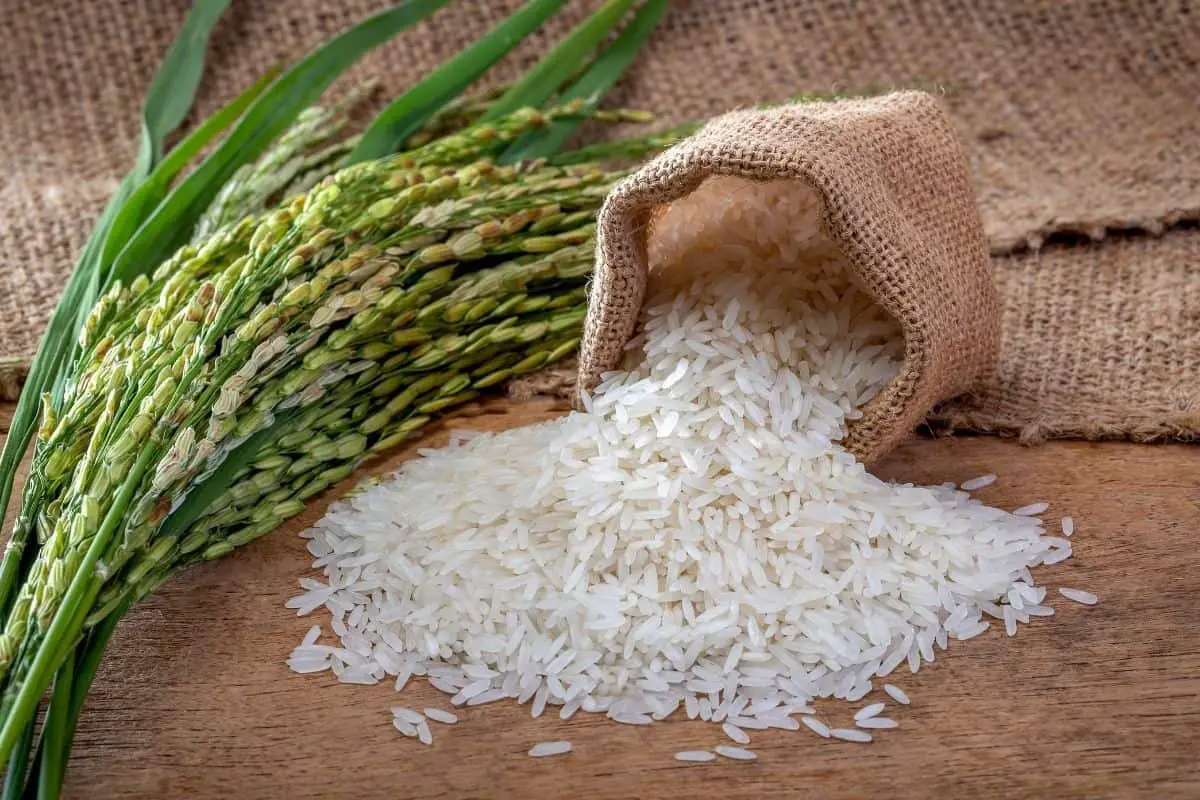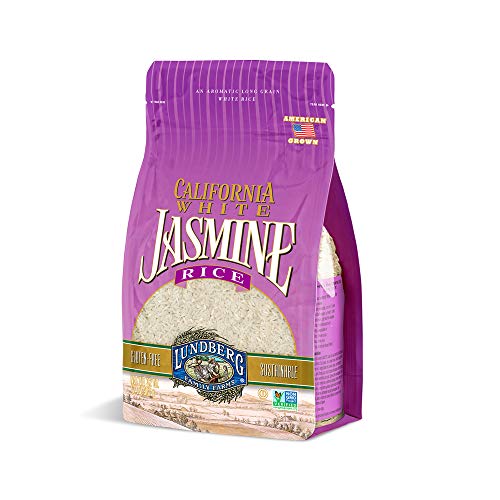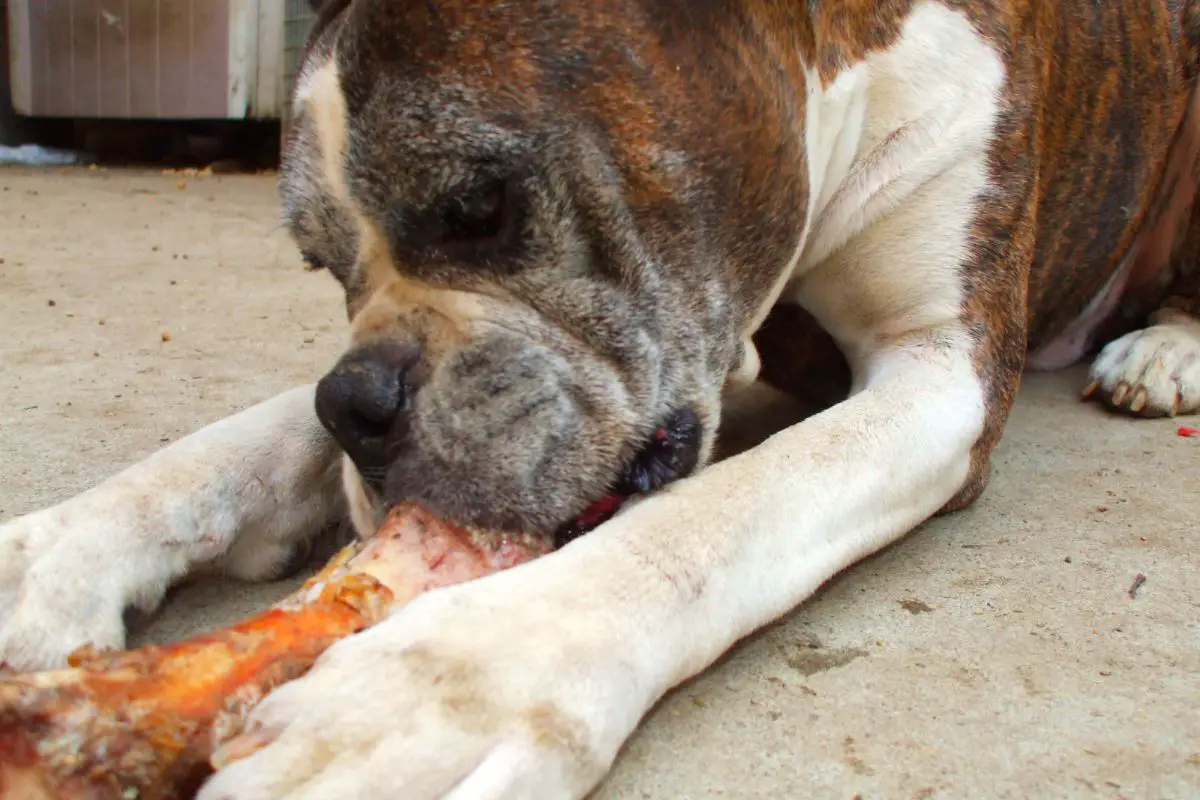This post contains affiliate links.
Many pet owners are starting to feed their dogs a diet outside of traditional kibble. Dogs require protein, carbohydrates, and fats, just like humans. However, many modern dog foods don’t contain enough of these nutrients, which is why jasmine rice comes to mind. It has healthy amounts of protein and carbs, but is it safe for pups?
Dogs can eat jasmine rice because it contains healthy protein and carbs. However, too much rice can harm your dog’s digestive system, make them too full for their regular meals, and cause bloating. Combining jasmine rice with chicken is an excellent way to treat a dog’s diarrhea.
In this article, we’ll discuss how jasmine rice can be good and bad for your dog, various meal suggestions and portions sizes, and when it’s okay to feed it to your dog. We’ll also break down what you need to know before preparing it.
Table of Contents
Is It Okay to Feed Your Dog Jasmine Rice?
Most dogs will eat anything, but that doesn’t mean it provides the nutrients they need. According to Bulldogology, jasmine rice is perfectly fine for your dog to eat. In fact, many pet owners add it as an integral part of their pup’s meals. There is a lot of energy-boosting and muscle-growing benefits your dog can enjoy, but it’s best to take it slow with any new diet.
Here’s what you should know about feeding your dog jasmine rice:
Start With Small Portion of Rice
Any time you change your dog’s diet, they might experience digestive issues or an unwillingness to change what they eat. Some dogs are stubborn, while others are incredibly sensitive to new food. We suggest adding half of a cup to their meals once per week until you can analyze how they deal with bowel movements and potential changes in energy levels.
Mix Jasmine Rice With There Regular Food
Jasmine rice isn’t good enough without other food. It can be a great part of your dog’s diet, but it won’t suffice because there’s not enough protein. Scoop half of a cup and stir it into their regular meals, so it’s not too much of a surprise to their stomach. Since they’re used to their kibble, their bodies won’t reject or question the new food.
Check With a Vet If You’re Concerned
While it’s perfectly fine for most dogs to eat jasmine rice, you know yours better than anyone. If you’re worried because they have sensitive stomachs or your dog is very young or old, it doesn’t hurt to seek a professional’s opinion. Your vet will also help you provide optimal portion sizes depending on your dog’s weight and gender.
As you can see, jasmine rice is typically a welcome meal supplement for dogs. It has plenty of nutritional value and lets your pup enjoy something new a few times weekly. You’ll also be able to save a bit of money since you won’t use as much kibble. Jasmine rice is relatively inexpensive, so it’s more than worth it for a dog.
Benefits of Jasmine Rice for a Dog
Not only is jasmine rice safe for your dog, but it’s also packed with vital minerals and vitamins. They’ll get potassium, fiber, zinc, and many more nutrients with every serving. You might be surprised how healthy it is compared to the majority of store-bought kibble.
So, what are some of the benefits of jasmine rice for your dog?
- Jasmine rice contains 4 grams of protein per serving, which your dog needs for its muscles, cognitive functionality, and more. Healthline explains jasmine rice is loaded with protein compared to other types of rice. These nutrients are crucial for growing puppies and senior dogs who need them for brain functioning and muscle development.
- There are plenty of healthy carbohydrates in jasmine rice for long-term energy. Most kibble is packed with too many carbs, but a little bit is necessary for your dog to have all-day energy. Fortunately, jasmine rice provides slow-burning carbs that let your dog exercise and stay awake and happy throughout the day.
- Jasmine rice will keep your dog full if it’s a supplemental snack. Most dogs only eat once or twice per day, so it’s easy to understand why they might feel hungry if they’re not getting the proper nutrition. Jasmine rice is a filling meal that’s even better when it’s mixed with beef, chicken, egg yolks, and other food.
- It helps regulate water retention and mineral imbalances. Rice is known to absorb water, keeping your dog hydrated and improving their blood pressure. Older dogs are susceptible to many illnesses based on mineral loss or water retention issues. Thus, jasmine rice is an adequate addition to their weekly diet.
- You can give your dog jasmine rice to combat diarrhea. Dogs get digestive problems from all sorts of sources, including diet changes, too much ‘human’ food, not enough water, and more. Adding rice to their diet will boost their fiber intake and solidify their bowel movements to prevent dehydration and diarrhea.
This filling, nutritious food is often great for your dog’s health when given in proper portions. Dogs can eat many types of rice, but the most important part is to feed them other foods when they’re consuming jasmine rice. If you’re interested in a few recipes and meal plans to incorporate jasmine rice into their diet, read on.
How to Give Jasmine Rice to Your Dog
We covered why you shouldn’t give your dog jasmine rice without other food. It doesn’t have enough nutrition. However, there are several ways your pup can enjoy this delicious food. Make sure you don’t add salt or butter to the rice since dogs can’t handle too much sodium or fat. Unseasoned jasmine rice works well without these additives.
Try these four recipes:
- Mix jasmine rice with beef or chicken once or twice a week. Petmoo shows these meal combinations have enough carbs, protein, vitamins, and minerals for them to live a healthy lifestyle. Switch the meat source every time you feed your dog if you want them to stay satisfied with this new diet.
- Stir egg yolks into jasmine rice and put it on their regular food. Egg yolks are loaded with protein, but they also have biotin and riboflavin to make their coat softer and shinier. Your dog will have no problem eating this delicious meal because it’s tasty and has everything they need to survive and thrive.
- Simply mix jasmine rice with your dog’s food by itself. If you don’t feel like getting too creative, jasmine rice and kibble will suffice. This combination is preferred if you’re trying to help your dog get over a bout of diarrhea or dehydration. It’s simple enough to heal their digestive system and soothe their appetite.
- Add jasmine rice with various vegetables and chicken or beef. A raw food diet is becoming more popular for dogs these days. Pet owners understand dogs can eat raw meat and vegetables since it’s what their ancestors did. While it might be more expensive, a raw food diet with meat, vegetables, and jasmine rice is hearty and healthy.
Can Dogs Eat Rice Daily?
Dogs shouldn’t eat any type of rice daily because it can make them feel bloated. Two to three jasmine rice meals a week are enough to gain the benefits, but anything more than that can cause them to feel sick. It can also make them fatigued, unable to eat different foods, and harm their digestive system by causing constipation.
If you’re considering feeding your dog jasmine rice, don’t dive into three sessions a week. Instead, give it to them once and see how they react over the next few days. If they’re energetic, happy, and full, you can boost it to the previously mentioned two to three times weekly.
Conclusion
Your dog shouldn’t eat jasmine rice several times per day, but a rice meal a few times per week can be a healthy boost for their mind and body. We don’t recommend giving them jasmine rice as a meal without other food because it doesn’t have everything your dog’s body needs, but it’s excellent supplemental food.
Related article:
Can You Give a Dog Rice for Weight Gain? (We Find Out)
Sources
Mrdogfood.com is a participant in the Amazon Services LLC Associates Program, an affiliate advertising program designed to provide a means for sites to earn advertising fees by advertising and linking to Amazon.com. We also participate in other affiliate programs which compensate us for referring traffic.





